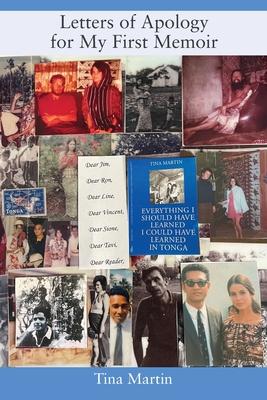Letters of Apology for My First Memoir is a must-read for all writers of memoirs-those who've written one or plan to-to see the pitfalls, hopes, and responses through the eyes of the writers and the friends receiving copies of what they've written. (The author has asked her son to make copies of the book available as party favors at her memorial service.)
It will also interest adoptees, adoptive parents, birth parents, and genealogists as well as estranged sisters becoming friends in their old age and to vegans and the people they annoy.
In humorous, self-deprecating prose--and sometimes verse--the author deals with writing, over-writing, being read, not being read, winning and alienating friends, sharing radically different memories of the same events, aging, and dying, all while asking about life and writing: What happens, and what does it mean?
"MEMOIR" is a piece of fiction in the middle of the triad that makes up the book:
"Mim had written a book, and it had a bar code!...Now she could die, or so she thought."
So begins the contrast between a memoirist's feeling of completion and the friends to whom she's sent a copy of her memoir:
"There should be a warning label on memoirs, and it should be all in caps with an exclamation mark after the word 'MEMOIR!' Like 'MARS ATTACKS!'"
A book reading at a barbecue becomes a roasting, and despairing memoirists-including the recipient of a poison pen letter and a dedicated vegan determined to state her plant-based case ("kind to animals and to the environment") and serve her favored dishes to those she's annoying -form a support group they call Dismissed Memoirists.
"Finding Family We Never Knew We Had" is non-fiction ("as if any narrative we have about ourselves is really true!") describing a pandemic Christmas visit by a once-estranged sister who in the early 1980s helped the author do a search for their mother's "creation story." While exploring their own relationship over seven decades, they review their sleuthing in an era when records were not online and searches were active and interactive, making old census sheets precious and librarians heroic.
"Letters of Apology for My First Memoir" is a series of letters of confession written to the men the author described in her coming-of-age Everything I Should Have Learned I Could Have Learned in Tonga soon after its publication, when she feared they might sue. ("I try to do what I think is right and apologize later," she says, conjuring up the pardon-not-permission approach to life.) She continues to apologize to just about everyone-editors, readers, her parents, the once-estranged sister, and other family members she's met and those she hasn't-for past, present, and future transgressions.
"Honey, you've taken that sentence in five different directions, and you've brought it back. But there will be people who won't be able to follow you," their father tells her sister, and the author knows the same applies to her. But readers who appreciate rule-breaking and artful digression will enjoy Letters of Apology for My First Memoir. Those who want a more conventional book might enjoy editing it!
